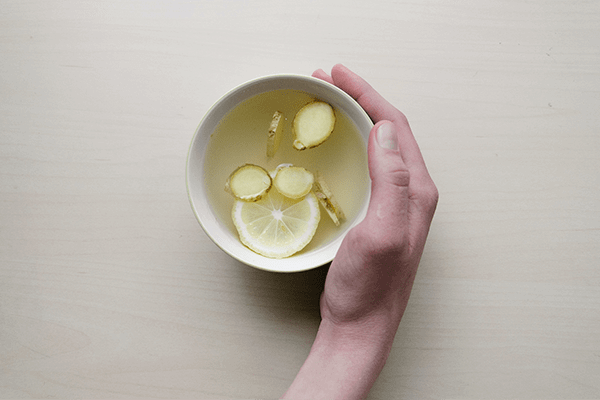In both eastern and western medicine, a healthy digestive system is recognized as a critical component of overall health.
We’ve already dug into the western world’s wisdom for good gut health. Are there any additional tips we can learn from Traditional Chinese Medicine?
In nearly every acupuncture treatment, acupuncturists consider it essential to ask their patients about their digestive system function. To every TCM practitioner, signs of a healthy gastrointestinal tract (GI tract) include regular and well-formed stools, no bloating after meals, feeling energized, and healthy skin and nails. Alternatively, someone needing digestive system support may have bloating, constipation, heartburn, diarrhea, nausea, gas, stomach pain, fatigue, or poor nail and skin health.
Why is gut health important?
If you’ve ever experienced indigestion, stomachaches or other digestive distress, you already know that an imbalanced or poorly functioning GI system is not only uncomfortable but can be physically and emotionally distressing as well.
Growing research on the gut microbiome shows that it is connected to virtually every organ system in the body. More specifically, the health of the gut microbiome has been linked to emotional and mental health, as well as healthy immune function. [i] [ii]
Safe to say that maintaining a healthy digestive system helps us feel our best and keeps us healthy and strong!
Lifestyle tips for a healthy gut
From a TCM perspective, the digestive system lies within what we refer to as the middle jiao, or the center of the abdomen. It relates mostly to the Stomach and Spleen meridian and organ systems and it also includes the Liver, Large Intestines and Small Intestine.
Proper functioning of these organ systems ensures the transformation of food into energy and nourishment. Any imbalance or disharmony in these organ systems is thought to lead to suboptimal digestion.
Since all organs and channel systems of the body are related to each other in Eastern medicine, healthy digestive function is important for the function of the other systems as well.
Minimize Stress and Worry
Similar to the western gut-brain connection research, Traditional Chinese Medicine theory also recognizes the significant communication between your belly and your brain.
In TCM theory, emotions such as worry and stress can have a taxing effect on the digestive system – more specifically, the spleen and liver meridian energetics. This can show up as bloating, sluggish digestion, irregular bowel movements, nausea, etc.
Finding ways to help reduce the effects of stress on the body and relaxing the body and mind are important for gut health. Try a mindfulness practice such as breathwork, yoga, or meditation.
Practice Good Eating Hygiene
You may have heard of sleep hygiene, but what about healthy mealtime practices?
Aside from the obvious of thoroughly washing hands and produce, this actually refers to HOW we eat our food.
According to TCM, these practices support ideal digestion:
- Find a comfortable place to sit – never eat standing up.
- Practice mindfulness and focus on the meal in front of you. Maybe sit for a moment and appreciate your meal before digging in. This will activate saliva, which is the essential first step of digestion.
- Turn off distractions such as the TV, emails, or your phone. This is especially important if the news or tv shows are distressing.
- Try to keep regular meal times, so that you are eating at approximately the same time every day.
- According to the TCM clock, there are ideal times to eat based on the energetics present during those particular hours. From this perspective, it is best to have breakfast from 7-9am, lunch from 11am-1pm and dinner from 5-7pm.
- Chew food thoroughly. This kicks off the breakdown process!
- Eat just until full and try to avoid overeating. Overeating stresses the digestive system and makes it difficult for your body to properly digest your food.
- Eat among pleasant company and conversation. Keep conversation topics light and share meals with loved ones who feel good to be around.
- Eat with joy! Eat foods that make you happy and feel good. According to Five Element theory in TCM, the fire element is related to the emotion of joy, and the heart channel and organ system. For proper digestion we need ‘fire’ to transform our food. Think of joy as a source of fire to help the digestive process.
Diet tips for a healthy gut
In addition to HOW we eat our meals, WHAT we eat is also significant.
Please note: while these are overall guidelines to support your digestive system, it is important to listen to YOUR body and find what works best for YOUR unique system.
Foods that are delicious and supportive for one person may not be tolerated by another. Your body is your best indicator!
Foods to focus on
Especially if you are currently experiencing digestive distress, choose simpler foods that are warm and cooked. From a TCM perspective, warm and cooked foods are easier for the body to digest.
While raw fruits and vegetables are of course nutritious and valuable, they can be more difficult for the body to break down, leading to possible bloating and discomfort. Try roasting, steaming, or sautéing your vegetables.
Eat healthy, balanced meals and aim to eat as natural and organic as possible in order to avoid pesticides and other chemicals. Emphasize whole foods over packaged and processed foods.
Try adding fermented foods with probiotic activity such as sauerkraut, pickled foods, kimchi, tempeh, and miso.
Stay hydrated and drink fluids between meals. Hydration is necessary for proper digestion and elimination.
Foods to limit or avoid
Avoid eating heavy, greasy meals. Fried and fatty foods can be taxing on the digestive system.
As mentioned above, limit cold and raw foods, especially in the colder months. In general, it can be very helpful to your digestive system to try to vary your diet according to the seasons. You can learn more about eating seasonally here.
Try to limit the amount of processed foods such as refined sugars as well as alcohol and caffeine.
Tea and herbs for gut health
Drinking tea is another tasty way to support a healthy digestive system.
Try adding ginger or peppermint tea to your routine. According to TCM, ginger warms the center and helps to strengthen the Spleen and Stomach systems. Ginger tea is excellent if you experience bloating with meals or notice that cold and raw foods are particularly troubling.
Alternatively, mint has a cooling effect. Mint tea is best following heavier meals (or when we may have overeaten) because of its moving and dispersing quality.
Both these teas can be enjoyed throughout the year, but because of their temperature characteristics, mint is typically recommended in the warmer seasons and ginger in the fall and winter.
In Chinese Herbal therapy there are many formulas that address many types of digestive conditions. Working with an herbalist is another great way to strengthen and harmonize digestion.
Final Thoughts
It’s difficult to underestimate the importance of a healthy digestive system, given that it seems to impact nearly every other bodily system. Under TCM theory, the health of the organ systems responsible for digestion creates the nourishment and energy that the body needs to function. Treat your gut with care by eating the right foods for your body and following healthy mealtime practices!





